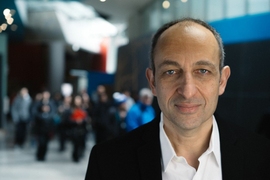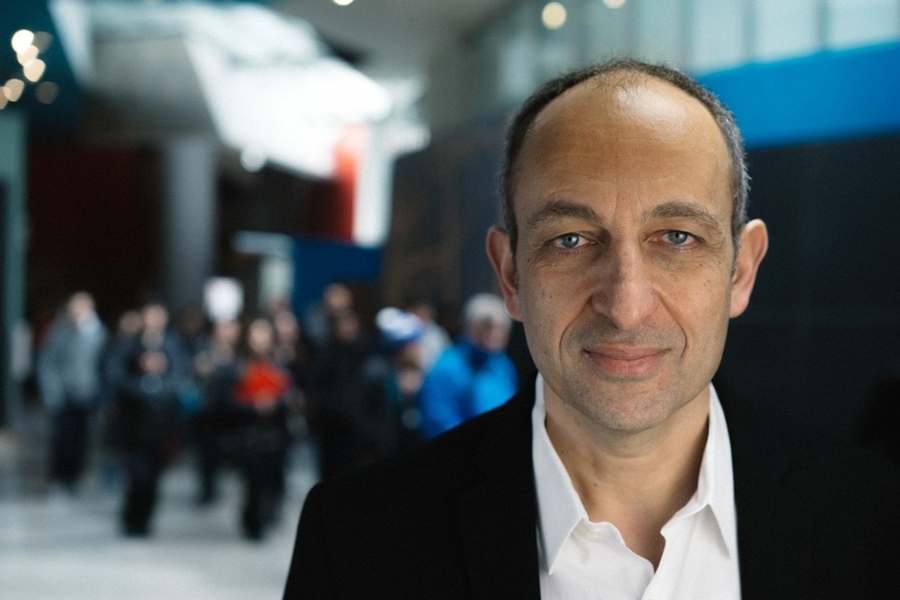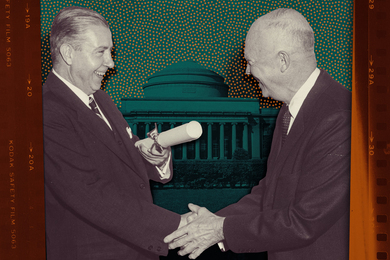What do data scientists and social scientists have in common? Not nearly enough — yet. But now, MIT is creating a new institute that will bring together researchers working in the mathematical, behavioral, and empirical sciences to capitalize on their shared interest in tackling complex societal problems.
As announced today by the deans of all five of the Institute’s schools, MIT will officially launch the new Institute for Data, Systems, and Society (IDSS) on July 1. Offering a range of cross-disciplinary academic programs, including a new undergraduate minor in statistics, IDSS will be directed by Munther Dahleh, the William A. Coolidge Professor in the Department of Electrical Engineering and Computer Science.
While providing a structure and incentives for new alliances among researchers from across MIT, IDSS will become a central “home” for faculty from the Engineering Systems Division and a number of existing units, including the Laboratory for Information and Decision Systems and the Sociotechnical Systems Research Center. IDSS will also launch a new MIT center on statistics.
“The Institute for Data, Systems, and Society will be a platform for some of the most exciting research and educational activity in complex systems at MIT,” Provost Martin Schmidt says. “Its formation is the result of intensive consultations among more than three dozen faculty members over many months. Those consultations have helped define many of the challenges that need to be addressed. I am deeply grateful to Munther for his leadership throughout this process.”
“This new institute allows MIT to bring all of its strengths to bear in exciting new directions,” says Ian A. Waitz, dean of the School of Engineering. “The modern proliferation of data and networks means that every problem, solution, or idea can be modeled, tested, and analyzed in ways and on scales that were unheard of 20, or even 10, years ago. This is leading to unprecedented challenges in areas like cybersecurity, and to spectacular opportunities for innovation, as in global online learning.”
“Engineering and science are always embedded in social realities, from deeply felt cultural traditions to building codes to political tensions,” says Deborah Fitzgerald, dean of the School of Humanities, Arts, and Social Sciences. “IDSS will allow the deep, original thinking about the physical universe that is done by our scientists and engineers to come together with the rigorous work of MIT’s great social scientists and economists.”
Students and researchers working with IDSS have a “nearly infinite pool of societal challenges they can begin to address together,” Dahleh says. In fields such as energy, transportation, social networks, health care, and financial systems, the explosion of data sources and networks is redefining not only social systems and infrastructure, but many of the disciplines that investigate them.
“In order to understand things like power outages and bank failures, you still need electrical engineers and economists — but today you also need anthropologists and data scientists, too,” Dahleh says. “Our ability to collect and aggregate data is already well beyond our ability to understand what it could tell us — and no single discipline, on its own, holds the keys to solving this problem.”
New demand, new program
Dahleh is building out the IDSS leadership team, which already begun to lay the foundations of its academic and research activities. One committee created has already completed the design of an interdisciplinary undergraduate minor in statistics.
A new PhD program anchored in both analytical tools and social sciences is also in the planning stages. The PhD will be problem-driven, requiring every student to gain in-depth expertise in a wide range of analytical tools; deep understanding of a coherent program in social science; and substantial knowledge in one application domain area.
“Bringing social-science dimensions to our strengths in science and engineering will have an enormous impact,” says Michael Sipser, dean of the School of Science. “Statistics has become the fastest growing college major in the country, and the IDSS will give us an opportunity to meet this demand in a distinctively MIT way.”
Also charged with hiring new faculty, the IDSS leadership has successfully recruited a top theoretical statistician to join MIT; they will continue to identify candidates in networked systems and connection science who have broad interests in engineering, economics, and social networks. They have also organized a statistics workshop, to be held May 14 and 15, to bring together thought leaders in statistics around exciting challenges created by the new era of data-rich applications. The speakers will offer technical presentations in mathematical statistics, machine learning, econometrics, and biostatistics.












